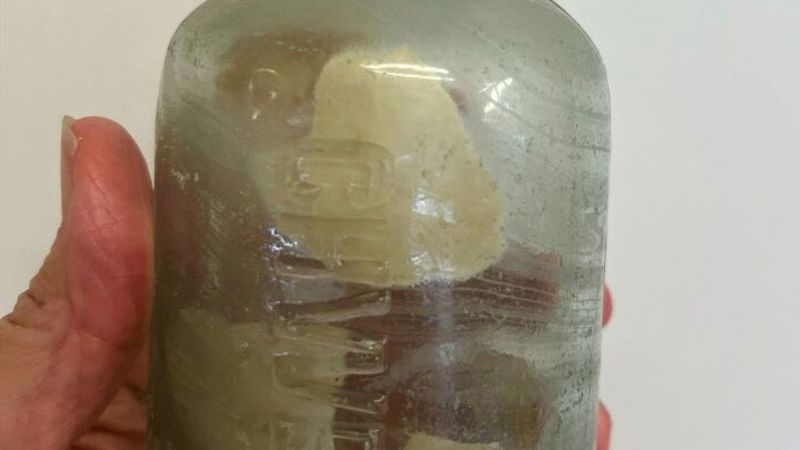Messages in a bottle written by two Australian soldiers during World War I have been discovered on the coast of Australia, more than a century after they were penned. The find occurred on October 9, 2023, at Wharton Beach near Esperance in Western Australia, when the Brown family stumbled upon a Schweppes-brand bottle while cleaning the beach.
Deb Brown, along with her husband Peter and daughter Felicity, regularly participates in beach clean-up activities. During one of their quad bike outings, they noticed the bottle resting just above the waterline. “We do a lot of cleaning up on our beaches and so would never go past a piece of rubbish. So this little bottle was lying there waiting to be picked up,” Deb Brown explained.
Inside the clear, thick glass bottle were cheerful letters written in pencil by Privates Malcolm Neville, aged 27, and William Harley, aged 37, dated August 15, 1916. Their troop ship, HMAT A70 Ballarat, had departed from Adelaide on August 12, 1916, en route to Europe, where they would join the 48th Australian Infantry Battalion on the Western Front. Tragically, Neville was killed in action a year later, while Harley survived two wounds but succumbed to cancer in 1934, which his family attributes to exposure to gas in the trenches.
In his letter, Neville requested that whoever found the bottle deliver his note to his mother, Robertina Neville, in Wilkawatt, South Australia. Harley, whose mother had died by 1916, expressed that the finder was welcome to keep his message. He wrote, “may the finder be as well as we are at present.”
Neville’s letter conveyed a sense of optimism as he described his experience at sea: “I am having a real good time, food is real good so far, with the exception of one meal which we buried at sea.” He noted the ship was “heaving and rolling, but we are as happy as Larry,” a colloquial expression reflecting their contentment. Meanwhile, Harley mentioned they were “Somewhere in the Bight,” referring to the expanse of the Great Australian Bight.
Deb Brown suspects the bottle did not travel far and likely spent decades buried in the sand dunes. Recent severe erosion along Wharton Beach possibly dislodged it. The paper inside the bottle remained wet but legible, allowing Deb to inform both soldiers’ relatives about this remarkable discovery. “The bottle is in pristine condition. It doesn’t have any growth of barnacles on it. I believe that if it had been at sea or exposed for that long, the paper would’ve disintegrated from the sun,” she noted.
The find has had a profound impact on the families of the soldiers. Harley’s granddaughter, Ann Turner, expressed her family’s astonishment, stating, “We just can’t believe it. It really does feel like a miracle and we do very much feel like our grandfather has reached out for us from the grave.”
Neville’s great-nephew, Herbie Neville, reflected on the emotional significance of the discovery, saying, “It sounds as though he was pretty happy to go to the war. It’s just so sad what happened. It’s so sad that he lost his life.” He added with pride, “Wow. What a man he was.”
This extraordinary find not only connects the past with the present but also serves as a poignant reminder of the sacrifices made by soldiers during a tumultuous time in history.
